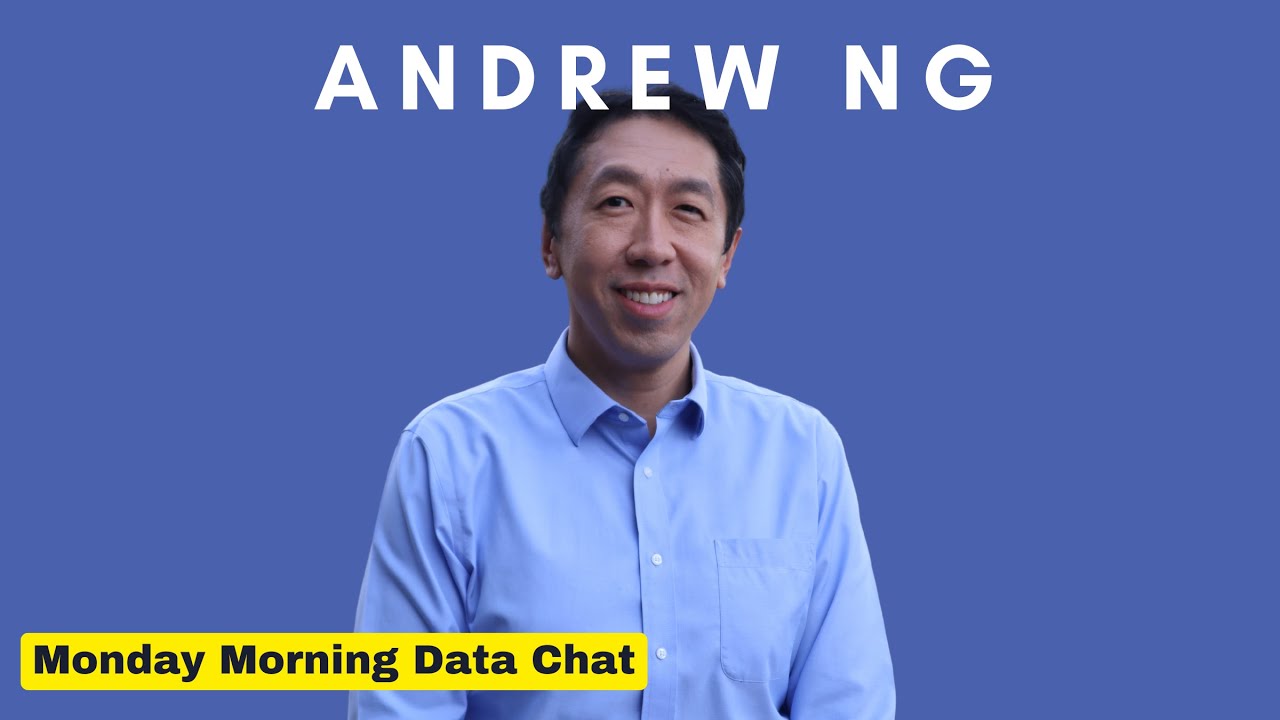Digital Marketing Institute | AI with DMI | GA4 and AI
Summary
TLDRThe conversation explores the future of marketing, emphasizing the integration of AI and human-centric experiences. It discusses the shift from text-based inputs to more intuitive methods like voice commands and visual cues, and the challenges in measuring these interactions. The speakers highlight the potential of AI to enhance scalability in marketing, with a focus on privacy concerns and legal considerations. They also touch on AI's role as a 'sounding board' for problem-solving and its ability to process large data sets for insights, suggesting a future where AI and human collaboration drive marketing innovation.
Takeaways
- 🌟 AI is becoming central to the future of marketing, particularly in optimization and improving marketing effectiveness.
- 📈 GA4 (Google Analytics 4) is designed to measure human use of websites as utilities for completing tasks.
- 🚀 The next generation of marketing will focus on the humanization of marketing, utilizing all human faculties and senses.
- 🔍 Search experiences will evolve from text inputs to more interactive elements like images, voice, and gestures.
- 📊 Measurement tools like Google Search Console and Google Ads will need to adapt to capture these new forms of interaction.
- 🤖 AI will play a significant role in handling the complexity of optimizing against these new types of inputs.
- 📈 AI adoption in marketing will likely be gradual, with early adopters leading the way and the majority following over time.
- 🔧 AI will be used for scalability, helping to evaluate optimizations and decision-making in marketing, especially for SMBs.
- 🔒 Privacy concerns and legal considerations are major limitations for AI use in marketing, requiring careful handling of client data.
- 🛠️ AI can serve as a sounding board for problem-solving, providing unexpected solutions and insights from data analysis.
- 📊 AI's ability to process and analyze large data sets, such as spreadsheets from social media and keyword tools, is a valuable asset for digital marketers.
Q & A
What is the future of marketing effectiveness and optimization?
-The future of marketing effectiveness and optimization is heavily influenced by AI, Search Generative Experiences, and the humanization of marketing, which involves using all human faculties and senses in the search and interaction process.
How does GA4 measure human use of websites?
-GA4 is designed to record how humans use websites by focusing on the tasks they complete, such as pressing buttons, watching videos, or performing other actions, treating the website as a utility.
What are the next generation inputs in marketing?
-The next generation inputs in marketing will move beyond simple text inputs to include more human attributes like pointing, looking, and vocalizing, which will change the way we interact with search engines and other platforms.
How will the measurement of Search Generative Experiences (SGE) be handled?
-SGE will be measured through tools like Google Search Console, and the new AI-powered Google Ads will be measured through Google Ads itself. These tools will feed back into GA4 to present the nature of user interactions.
What challenges does AI optimization in marketing present?
-AI optimization in marketing presents challenges in understanding what exactly is being optimized against, as traditional keyword-based optimization is replaced by AI-driven approaches that may not be as straightforward to measure or understand.
How will AI impact the adoption of new marketing technologies?
-AI will initially do the heavy lifting for early adopters, serving as a test case for the technology. However, it will take time for these technologies to become mainstream and fully integrated into the consumer psyche.
What role will AI play in scalability for NP Digital's SMB division?
-AI will be used to help evaluate optimizations and decision-making, providing scalability by automating tasks that would otherwise require more human resources. This will allow NP Digital to service clients more effectively, similar to how they would service enterprise clients.
What are the privacy concerns when using AI in marketing?
-Privacy is a major concern when using AI in marketing. There is a risk of releasing client information by putting their data into AI platforms, especially if the platforms' terms state that any input becomes open-source data. Legal teams are working on guidelines for the safe use of AI in this context.
How does AI assist in data analysis and decision-making?
-AI can serve as a sounding board for data analysis, allowing marketers to input complex data sets and receive insights that might lead to unexpected solutions. AI's ability to process and analyze large amounts of data can help identify patterns and trends that may not be apparent to human analysts.
What are the limitations of AI in marketing?
-Limitations of AI in marketing include privacy concerns, legal precedents, and ensuring that AI tools do not violate client data privacy. Additionally, there is a need for a balance between AI's capabilities and human oversight to ensure ethical and effective use of the technology.
Outlines

This section is available to paid users only. Please upgrade to access this part.
Upgrade NowMindmap

This section is available to paid users only. Please upgrade to access this part.
Upgrade NowKeywords

This section is available to paid users only. Please upgrade to access this part.
Upgrade NowHighlights

This section is available to paid users only. Please upgrade to access this part.
Upgrade NowTranscripts

This section is available to paid users only. Please upgrade to access this part.
Upgrade NowBrowse More Related Video

The Future of Marketing is Immersive - ANALISIS #54

Generative AI: A Conversation with Malcolm Gladwell & Darío Gil

AI Solutions for Teachers and Professors

Lec 06- Customer value and Role of AI in Value Delivery Process

Andrew Ng - Why Data Engineering is Critical to Data-Centric AI

What Makes Us Human in the Age of AI? A Psychologist and a Technologist Answer | TED Intersections
5.0 / 5 (0 votes)